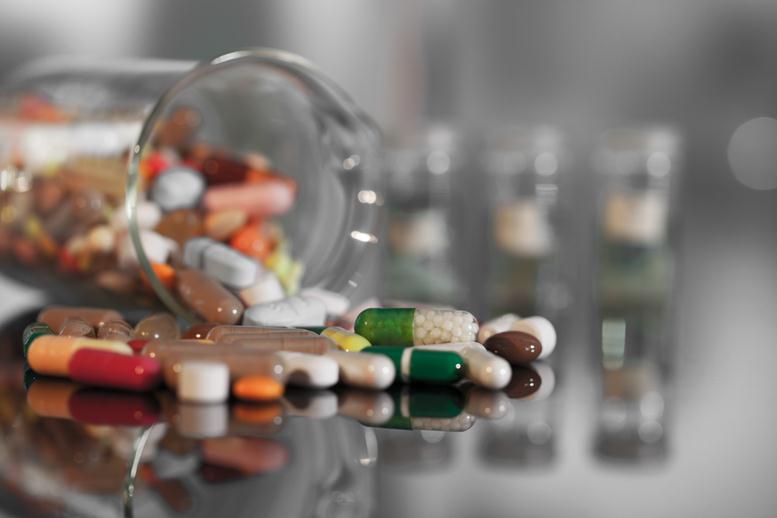DUBLIN, Oct. 11, 2023 /PRNewswire/ — The “Acute Care Syndromic Testing Market – A Global and Regional Analysis: Focus on Disease Type, Target, Sample Type, End User and Country Analysis – Analysis and Forecast, 2023-2033” report has been added to ResearchAndMarkets.com’s offering.

The acute care syndromic testing market was valued at $3.14 billion in 2022 and is expected to reach $8.44 billion by 2033, growing at a CAGR of 9.43% between 2023 and 2033
The global acute care syndromic testing market has experienced significant growth driven by the increasing demand for the early detection of infectious diseases. Several factors have contributed to this growth, including the rising prevalence of infectious diseases, the occurrence of pandemics, and the emergence of new infectious diseases in different regions of the world.
Moreover, the global temperature rise and the detection of new infectious diseases have also played a crucial role in driving the market’s expansion. The acute care syndromic testing market has the potential to provide advanced healthcare solutions, with a focus on early detection and management of infectious diseases.
A notable example of this potential is a partnership between Abbott Laboratories and the Climate Amplified Disease and Epidemics (CLIMADE) consortium in April 2023. This consortium comprises over 100 scientists globally from various academic and public health agencies. Together, they aim to leverage diagnostic testing and data science technologies to mitigate the impact of future disease outbreaks.
The market is further fueled by advancements in diagnosing, predicting, treating, and monitoring infectious diseases, as well as increasing patient demand for these tests. The ability to provide quick turnaround times for test results is another critical factor contributing to market growth.
The companies profiled in the market have been selected based on inputs from primary experts and an analysis of their company coverage, product portfolio, and market presence. The top players in the disease-type segment hold a significant market share of approximately 56.30%, while players in other sectors, such as gastrointestinal, genitourinary, tropical diseases, and others, collectively make up around 43.70% of the market presence.
Demand – Drivers and Limitations
Market Demand Drivers:
Syndromic testing for infectious diseases offers several advantages over traditional single-plex testing methods. One of the key benefits is the speed at which results can be obtained. While traditional methods like microscopy and bacterial culture may take more time, syndromic multi-plex tests utilize Polymerase Chain Reaction (PCR) technology, which is known for its accuracy and efficiency. This enables syndromic tests to deliver quick and comprehensive results, allowing physicians to make faster clinical decisions and provide better care to patients.
The increasing incidence of infectious diseases worldwide has led to a growing demand for effective diagnostic solutions. Governments and global health systems are collaborating to address the risks associated with pandemics at various levels, including local, national, and regional. Despite these efforts, the world continues to face challenges posed by emerging, reemerging, and longstanding infectious diseases.
Syndromic testing plays a crucial role in early diagnosis, contributing to reduced healthcare costs. By facilitating easier and quicker diagnosis of infectious diseases, syndromic testing benefits not only individual patients but also healthcare institutions as a whole. This reduction in costs can have a significant positive impact on healthcare systems and the overall well-being of patients.
Market Opportunities:
Quick Access to Treatment and Reduced Use of Antibiotics: When diagnosed with an infectious disease, the most efficient cure for late-stage infections is antibiotics. This can be combated with the use of syndromic testing, as it can help to detect pathogens at the earliest stages. According to a report by Zhu et al. published in 2019, stated that antibiotic prescriptions could be reduced by 30% with the use of syndromic testing.
High Number of Synergic Activities and Mergers and Acquisitions: The acute care syndromic testing market has witnessed many synergistic activities and mergers and acquisitions since January 2020. This is leading to the consolidation of the market. In June 2022, R-Biopharm acquired AusDiagnostics and with it their wide range of syndromic diseases testing product range.
Market Challenges:
The adoption of syndromic panels for infectious disease testing offers several advantages, including faster turnaround times and potential long-term cost savings for patients. However, there are challenges related to reimbursement for these panels. Not all syndromic panels have received FDA approval, which means they may not be eligible for reimbursement. Furthermore, even FDA-approved home-use panels are generally not reimbursed, which can hinder their adoption.
To make syndromic panels more accessible to a wider range of income classes, it is essential either to ensure constant reimbursement for these panels or significantly reduce their costs. Addressing the reimbursement gap and making syndromic panels more financially viable for patients can help promote their adoption in healthcare settings.
Another challenge is the need for high-complexity testing centers to accommodate the rapidly advancing genomic platforms used in syndromic testing. These centers require substantial capital investment and a high test volume to operate at scale and achieve competitive pricing.
Additionally, managing and maintaining various technology platforms can be a complex task. Overcoming these challenges and expanding access to high-quality syndromic testing services will be crucial in advancing the field of infectious disease diagnostics.
Key Attributes:
|
Report Attribute |
Details |
|
No. of Pages |
227 |
|
Forecast Period |
2023 – 2033 |
|
Estimated Market Value (USD) in 2023 |
$3.43 Billion |
|
Forecasted Market Value (USD) by 2033 |
$8.44 Billion |
|
Compound Annual Growth Rate |
9.4 % |
|
Regions Covered |
Global |
Market Segmentation:
- Respiratory Diseases Dominance: Respiratory panels hold the largest market share (56.29%) in 2022, ideal for distinguishing between viral and bacterial respiratory pathogens.
- Bacteria Panels Leading: Bacteria panels account for a significant share (41.65%) in 2022, addressing various infections.
- Swabs Preferred Sampling Method: Swabs dominate the market (51.90%) due to their ease of use.
- Hospitals as Key Users: Hospitals are the primary end users (42.53%) of syndromic testing, particularly in North America and Europe.
- Regional Insights: North America holds the highest market share (40.41%) due to legacy companies, while Asia-Pacific exhibits the highest growth potential (10.97%) driven by syndromic panel adoption, especially in China and India.
Market Dynamics
Market Drivers
- Faster Results Acquired with Syndromic Tests
- Increasing Incidence of Infectious Diseases
- Overall Reduced Cost of Care Due to Early Diagnosis with Syndromic Testing
- Reduced Severe Adverse Effects from Pathogens
Market Challenges
- Need for Better Policies with Respect to Acute Care Syndromic Test Reimbursement
- Lack of High-Complexity Testing Centres
Market Opportunities
- Quick Access to Treatment and Reduced Use of Antibiotics
- High Number of Synergistic Activities and Mergers and Acquisitions (M&A) Over the Past Years
Industry Insights
- Stakeholder’s Perspective (N=20)
- Physician’s Perception
- Payor’s Perception
- Investor’s Perception
- Legal and Regulatory Framework of the Global Acute Care Syndromic Testing Market
- Product Benchmarking
Key Companies Profiled:
- Abbott Laboratories
- Becton, Dickinson and Company
- Biocartis NV
- bioMerieux SA (BioFire Diagnostics)
- Danaher Corporation (Cepheid, Inc.)
- DiaSorin S.p.A (Luminex Corporation)
- Eurofins Scientific (Eurofins Viracor)
- Karius
- Laboratory Corporation of America Holdings.
- QIAGEN N.V.
- QuantuMDx Group Ltd.
- Seegene Inc.
- Siemens Healthineers AG
- SpeeDx
- Thermo Fisher Scientific Inc.
For more information about this report visit https://www.researchandmarkets.com/r/ntpvfg
About ResearchAndMarkets.com
ResearchAndMarkets.com is the world’s leading source for international market research reports and market data. We provide you with the latest data on international and regional markets, key industries, the top companies, new products and the latest trends.
Media Contact:
Research and Markets
Laura Wood, Senior Manager
press@researchandmarkets.com
For E.S.T Office Hours Call +1-917-300-0470
For U.S./CAN Toll Free Call +1-800-526-8630
For GMT Office Hours Call +353-1-416-8900
U.S. Fax: 646-607-1907
Fax (outside U.S.): +353-1-481-1716
Logo: https://mma.prnewswire.com/media/539438/Research_and_Markets_Logo.jpg
SOURCE Research and Markets

Featured image: Unsplash © jonathanborba







